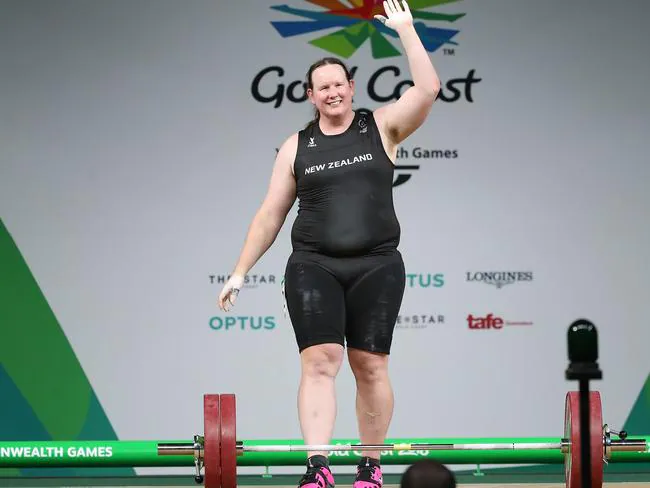From James Matthey at news.com.au:
Transgender weightlifter Laurel Hubbard suffered an early exit on her Olympic debut on Monday night, bowing out as the New Zealander’s historic appearance ignited heated debate on one of sport’s most divisive issues.
Hubbard was competing in the women’s +87kg class, but failed on each of her first three attempts in the snatch component of the competition. Her three unsuccessful attempts meant she did not progress to the clean and jerk phase and was knocked out.
Attempting the heaviest first attempt of the night when she stepped up, Hubbard failed to successfully lift the bar at 120kg. She looked like she had more success on her second attempt at 125kg and punched the air in delight, but her lift was ruled ineligible.
She also failed on her third and final attempt, ending her Olympic dream. Hubbard gave a touching gesture to the crowd which supported her as she digested her exit, clasping her hands to her chest, acknowledging the love she was feeling from those who cheered her on and extending it back out to them.
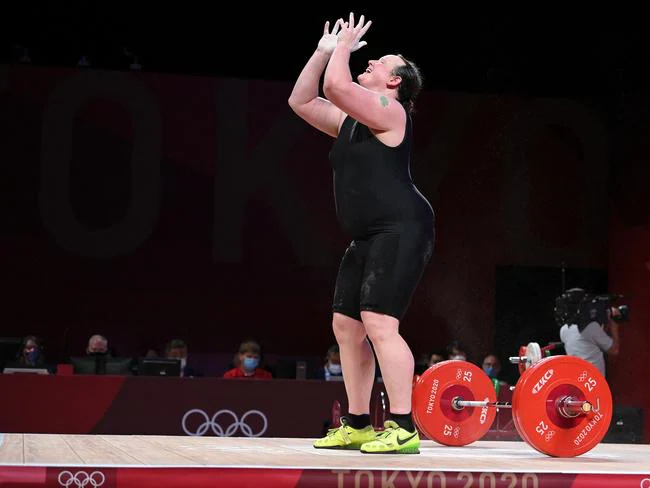
Hubbard’s message to the world
An emotional Hubbard gave a short statement to the throng of reporters clamouring to hear her speak, thanking those who helped make her appearance at an Olympics possible.
“Thankyou so very much for your interest in my non-performance this evening,” Hubbard said. “I know that from a sporting perspective I haven’t really hit the standards that I’ve put upon myself and perhaps the standards that my country has expected of me.
“But one of the things for which I am so profoundly grateful is that supporters in New Zealand have given me so much love and encouragement, and I think I wish I could thank them all at this point but there’s just too many to name. Thankyou so much to everyone who’s helped me along this journey.
“One of the great misconceptions of weightlifting is that it’s an individual sport but it isn’t. Behind every weightlifter there is a team of people who offer support, encouragement, just so many things. It’s my one regret that I can’t thank them all now.”
Hubbard then thanked the Japanese government for hosting the Games, the International Olympic Committee, the New Zealand Olympic Committee and the International Weightlifting Federation.
“They (the IOC) have reaffirmed their commitment to the principles of Olympism. They’ve demonstrated that sport is something for all people around the world to do. It’s inclusive, it’s accessible and I think that’s just really fabulous,” Hubbard said.
“The NZOC have supported me through what have been quite difficult times. I know my participation at these Games has not been entirely without controversy but they have been just so wonderful.
“They’ve been such a help and I’m so grateful to them all.”
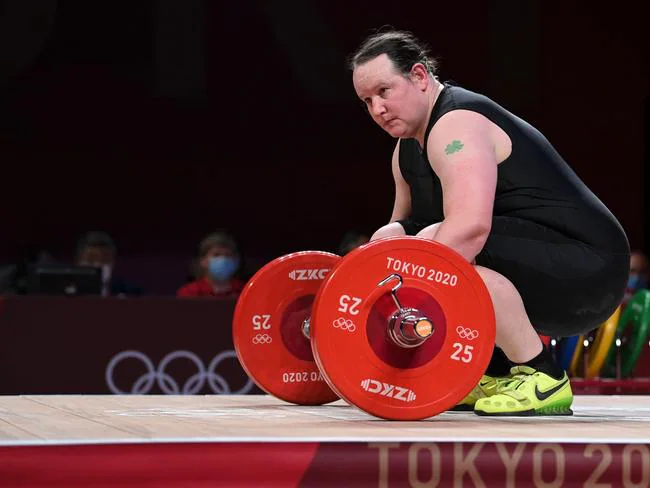
Hubbard was the last of the 10 competitors out as they lined up to be introduced to the crowd. There were cheers and loud applause for many of the weightlifters.
When Hubbard’s name was announced, she gave a short wave and there was a warm smattering of applause — however it wasn’t the most raucous reception of the night.
Spectators are banned but there were hundreds of people — if not more than 1000 — inside the convention centre where the event took place.
China’s Li Wenchen won gold, Emily Jade Campbell of Great Britain won silver and American Sara Elizabeth Robles was third.
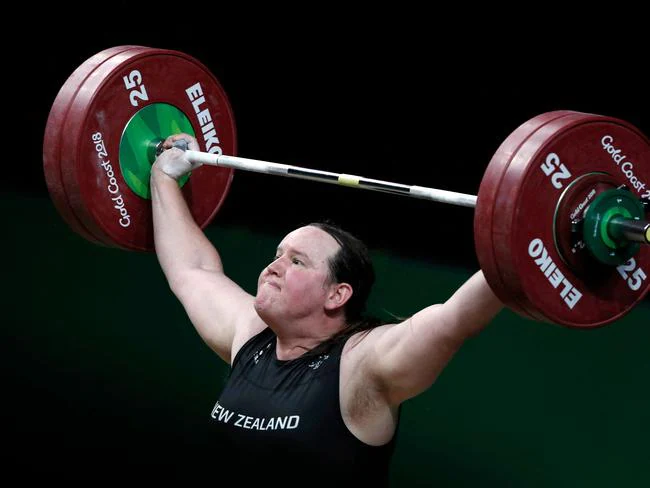
Hubbard’s historic appearance sparks debate
Hubbard competed as a man before transitioning to become a woman in her 30s, taking up the sport again after meeting the IOC guidelines for transgender athletes.
The IOC says she is the first openly transgender woman to compete at the Games, hailing it as a landmark moment for the Olympic movement.
“Laurel Hubbard is a woman, is competing under the rules of her federation and we have to pay tribute to her courage and tenacity in competing and qualifying for the Games,” IOC medical chief Richard Budgett told reporters in Tokyo last week.
However, her presence on the elite stage raises complex issues of bioethics, human rights, science, fairness and identity in sport.
Supporters say her appearance is a victory for inclusion and trans rights. Critics argue she has an unfair advantage over female rivals due to physical attributes locked into her body during her decades as a male.
Debate on the issue is intense and sometimes vitriolic, with barbs flying from both sides online, prompting to New Zealand Olympic Committee’s to take steps to shield Hubbard from social media trolls.
But the IOC concedes there are legitimate questions about whether Hubbard has — in the jargon-heavy language the sporting body uses to discuss the issue — a “disproportionate competitive advantage”.
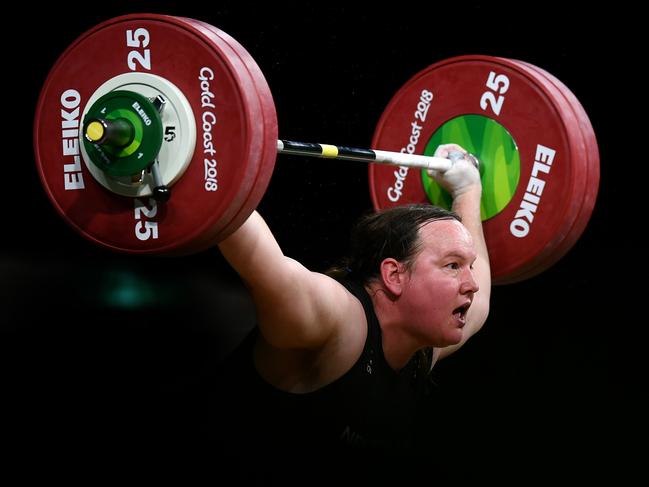
Female sporting advocates, including pioneering gay tennis star Martina Navratilova, have expressed concern that including transgender competitors is unfair and threatens to undermine hard-fought gains in lifting the status of women’s sport.
“I am happy to address a transgender woman in whatever form she prefers, but I would not be happy to compete against her. It would not be fair,” she said.
Caitlyn Jenner, who won Olympic gold in the men’s decathlon at the 1976 Olympics before coming out as a woman in 2015, declared earlier this year: “It just isn’t fair.”
